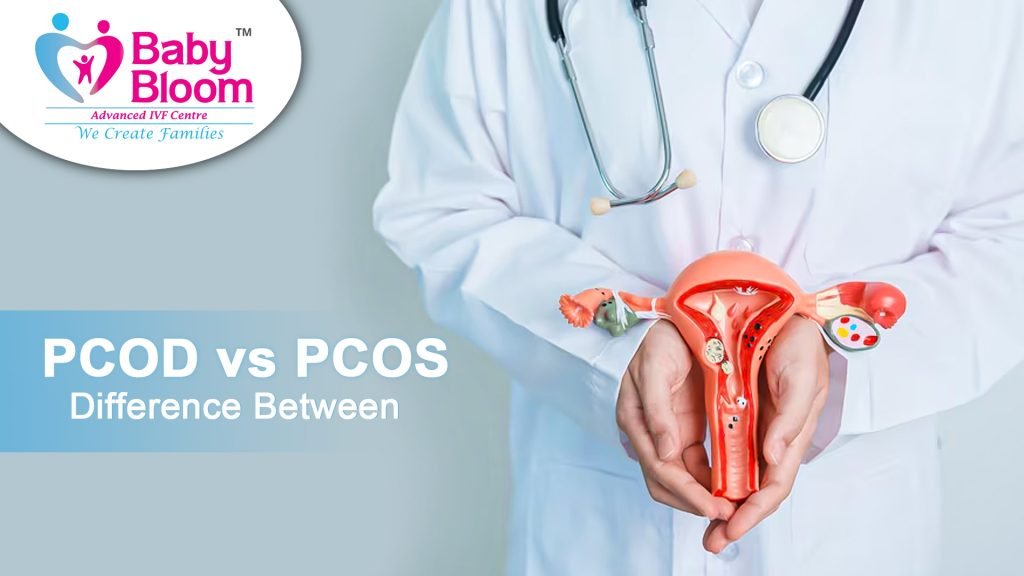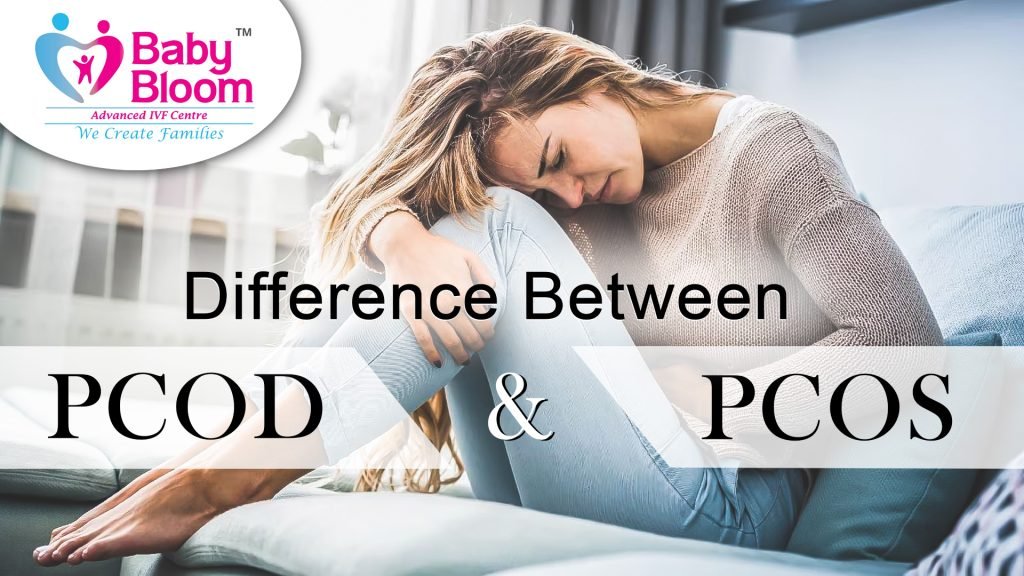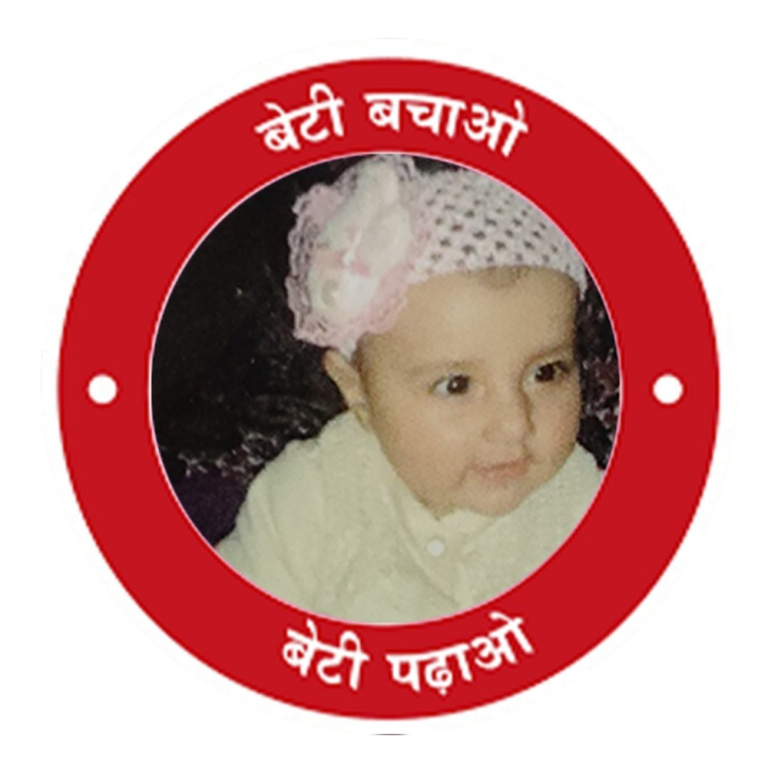PCOD vs PCOS: Understanding the Differences and Symptoms

Dr. Pujil Gulati, IVF Specialist with over 9 years of experience in Assisted Reproductive Techniques BabyBloom IVF Gurgaon
PCOD Vs PCOS Do you understand both are same? Many women get confused between the two terms. If you are someone who menstruates, or you have had enough interactions with people who menstruate, you have probably heard of PCOD or PCOS at some point in your life. In fact, despite similarities like being related to the ovaries and causing hormonal disturbances, the two conditions are different.
So let us know further how exactly both of them are different from each other, and what could be their causes, treatment, symptoms etc.

What is PCOD:-
PCOD (polycystic ovarian disease) is caused primarily by a combination of hormonal imbalances and genetic predisposition. In a normal menstrual cycle, both ovaries release mature, fertilization-ready eggs in turn each month. However, the ovaries of a person affected by PCOD often release either immature or only partially mature eggs, which can develop into cysts (small sacs filled with fluid).
In PCOD, the ovary starts releasing immature eggs which leads to hormonal imbalance and swelling of the ovaries in addition to some different symptoms, while in PCOS the ovaries produce excess androgens due to endocrine issues, causing ovulation. There is a risk of becoming a CYST. These cysts won’t, however, be released like in PCOD – rather they build up in the ovaries themselves
Main Symptoms of PCOD
- Irregular menstrual cycles can be a common concern for many individuals.
- Weight gain
- Acne and oily skin are common skin concerns
- Hair thinning
- Feeling tired and worn out.
About 20% of cases (based on data collected on Indian women) may need fertility drugs or other treatments to enhance fertility if they wish to conceive.
What is PCOS:-
PCOS (Polycystic Ovary Syndrome) is a metabolic disorder that affects women during their reproductive years, typically between the ages of 12 and 51, and is characterized by hormonal imbalances an increase in male hormones can cause females to skip menstrual periods and experience irregular ovulation, making it difficult to conceive. It can also lead to abnormal hair growth on the body and face. Over time, these issues may increase the risk of heart disease and diabetes. PCOS is a serious medical condition that requires appropriate medical care or surgical intervention.
Main Symptoms of PCOS
- Severe menstrual irregularities
- Excess facial and body hair (hirsutism)
- Persistent acne Obesity or challenges in losing weight
- Infertility concerns
- Increased risk of diabetes and heart disease
PCOS is among the most prevalent endocrine disorders affecting women, and it can lead to significant issues related to reproductive, metabolic, and overall health.
**Differences Between PCOS and PCOD**
1. **Seriousness of the Condition**
**PCOD**: Generally viewed as a less serious issue. Most cases can be managed through lifestyle adjustments such as a balanced diet, regular exercise, and effective stress management. Medical treatment is not always necessary.
**PCOS**: This is a more serious endocrine disorder that typically requires medical intervention, often involving hormonal therapies to help manage the condition.
2. **Prevalence**
**PCOD**: More prevalent among women, affecting about one-third of all menstruating women worldwide.
**PCOS**: While less common than PCOD, it is not rare. Research from Southern India and Maharashtra indicates that approximately 9.13% of menstruating women in these regions have PCOS, compared to 22.5% with PCOD.
3. **Impact on Fertility**
*PCOD**: Fertility challenges exist but are generally less severe. With lifestyle modifications and minimal medical support, pregnancy is usually achievable
4. **Cause of the Disorder**
**PCOD**: Primarily associated with lifestyle factors such as poor nutrition, stress, and insufficient physical activity.
**PCOS**: This disorder stems from hormonal imbalances within the endocrine system, often linked to genetic predispositions or metabolic issues.
5.**Social Perception and Awareness**
**PCOD and PCOS**: Both conditions face social stigma and misinformation, particularly in Indian culture. As they relate to menstruation and fertility, these topics are often considered taboo, resulting in limited discussions and understanding. This lack of dialogue hinders proper awareness of these prevalent health issues.

PCOD and PCOS: Finding the Right Path to Treatment
Treatment for PCOD includes:
- Following a balanced diet and cutting down on sugar
- Engaging in regular exercise to keep a healthy weight
- Managing stress with practices such as yoga or meditation
- Taking medications to regulate periods if necessary.
Treatment for PCOS includes:-
- Hormonal therapy to help regulate androgen levels,
- Addressing metabolic concerns like insulin resistance,
- Fertility treatments for women who are planning to conceive,
- Lifestyle changes that are similar to those recommended for PCOD
Conclusion:-
Recognizing the distinctions between PCOD and PCOS is essential for effective management. The key difference lies in the fact that PCOD typically involves less severe hormonal imbalances and can often be addressed through lifestyle adjustments, whereas PCOS is a more intricate condition that necessitates both medical intervention and lifestyle changes. If you are facing symptoms and are uncertain about the differences between PCOS and PCOD, it is advisable to seek guidance from a healthcare professional for an accurate diagnosis and tailored care plan.
FAQs
Q. What is the difference between PCOD and PCOS?
Ans- PCOD is an ovarian disorder characterized by mild hormonal imbalances, whereas PCOS is a more complex endocrine and metabolic condition.
Q. Are the symptoms of PCOD and PCOS similar?
Ans– Yes, they have some overlapping symptoms such as irregular periods and acne, but the symptoms of PCOS tend to be more severe and affect the body in a more systemic way.
Q. Is PCOD and PCOS the same condition?
Ans – PCOD and PCOS are two different conditions that have unique causes, symptoms, and treatment options.
Q. Can PCOD develop into PCOS?
Ans- PCOD usually does not develop into PCOS, but both conditions need appropriate management to prevent complications.
Q. How do you treat PCOD vs PCOS?
Ans –PCOD treatment emphasizes lifestyle changes, whereas PCOS treatment involves both lifestyle adjustments and medical management.
Welcome to BabyBloom IVF, where your journey to parenthood is nurtured with care, expertise, and the latest advancements in fertility treatment. Located in the heart of Gurgaon, Babybloom IVF is the Best IVF Centre in Gurgaon & leading fertility center dedicated to helping couples achieve their dreams of starting or growing their families.
Contact Us
Address No.1 I, block, 189, near Baani Square, South City II, Sector 50, (Gurgaon) Gurugram, Haryana 122018
Address No.2 Babybloom IVF, Nursing Home, Civil Rd, Company Bagh, Rohtak, Haryana 124001

Brought Happiness to the world
@BabyBloom IVF All Rights Reserved @2025


